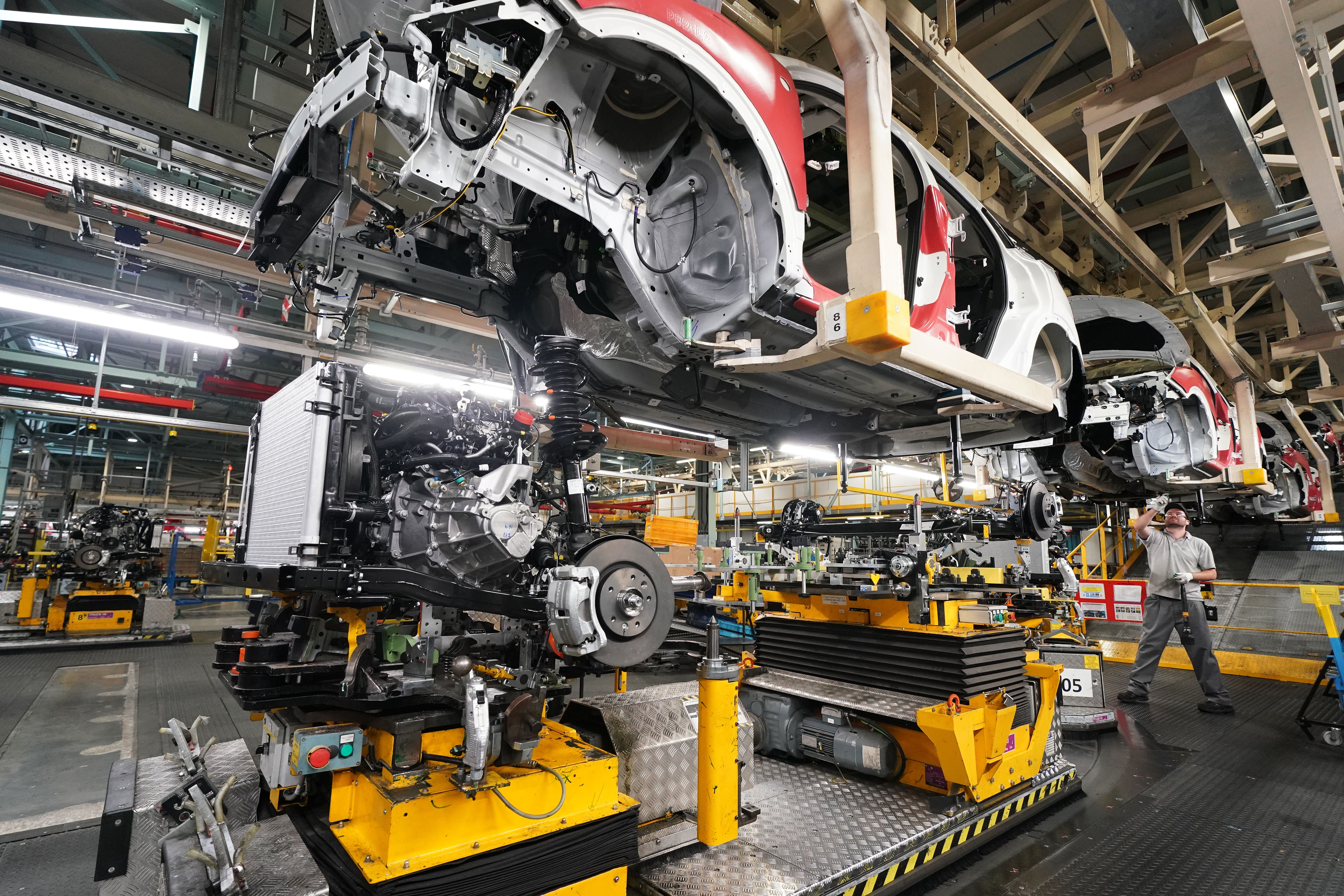Manufacturing industry shrinks at fastest rate in 11 months in ‘winter chill’
British factories reported concerns about rising business taxes and a weaker global economy, as the production industry contracted in December.

Your support helps us to tell the story
From reproductive rights to climate change to Big Tech, The Independent is on the ground when the story is developing. Whether it's investigating the financials of Elon Musk's pro-Trump PAC or producing our latest documentary, 'The A Word', which shines a light on the American women fighting for reproductive rights, we know how important it is to parse out the facts from the messaging.
At such a critical moment in US history, we need reporters on the ground. Your donation allows us to keep sending journalists to speak to both sides of the story.
The Independent is trusted by Americans across the entire political spectrum. And unlike many other quality news outlets, we choose not to lock Americans out of our reporting and analysis with paywalls. We believe quality journalism should be available to everyone, paid for by those who can afford it.
Your support makes all the difference.British factory output contracted at the fastest rate in 11 months in December, amid a swathe of job losses, growing concerns about rising business taxes and a worsening global economy.
The S&P Global UK manufacturing PMI survey, watched closely by economists, recorded a reading of 47.0 in December, from 48.0 in November.
Any reading above 50 indicates activity is growing while any score below means it is contracting.
The rate of job cuts hit a 10-month high, the survey found, with firms saying weak market conditions caused many to reduce their headcounts.
Company confidence fell to a two-year low, meanwhile, amid concerns about inflationary pressures, rising business costs and potential weaker economic growth this year.
Manufacturers said they were concerned about future cost increases, partly driven by rising taxes announced by Chancellor Rachel Reeves last year.
Manufacturers are facing an increasingly downbeat backdrop
Companies will pay more in national insurance contributions (NICs) from April, while the minimum wage is also set to rise, which will make it more expensive to employ people.
Firms also cited a weakening global economic outlook, as exports fell due to lower demand in Europe, Asia and the UK.
Concerns remain about the outlook for global trade in 2025, with Donald Trump assuming the US presidency later this month having promised a slew of trade tariffs.
Rob Dobson, director at S&P Global Market Intelligence, said: “A stalling domestic economy, weak export sales and concerns about future cost increases led to the steepest contraction of UK manufacturing production for almost a year in December.
“Manufacturers are facing an increasingly downbeat backdrop. Business sentiment is now at its lowest for two years as the new Government’s rhetoric and announced policy changes dampen confidence and raise costs at UK factories and their clients alike. SMEs are being especially hard hit during the latest downturn.
“This is sending a winter chill through the labour market. December saw the sharpest cuts to staffing levels since February.
“Some companies are acting now to restructure operations in advance of the rises in employer national insurance and minimum wage levels in 2025.”
However, some economists are optimistic about manufacturers’ hopes moving into 2025.
Elliot Jordan-Doak, a senior economist at the consultancy Pantheon Macroeconomics, said: “Businesses have been rocked by domestic policy changes in the form of NICs hikes, and external shocks in the form of the threat of a global trade war.
“But, the budgetary plans are for more spending than taxation, which will mechanically lift the PMI.
“What’s more, the focus on investment in the Budget should help the manufacturing sector.
He pointed to expectations that the Bank of England will likely cut the base interest rate several times this year, which will reduce borrowing costs and “should boost sentiment”.